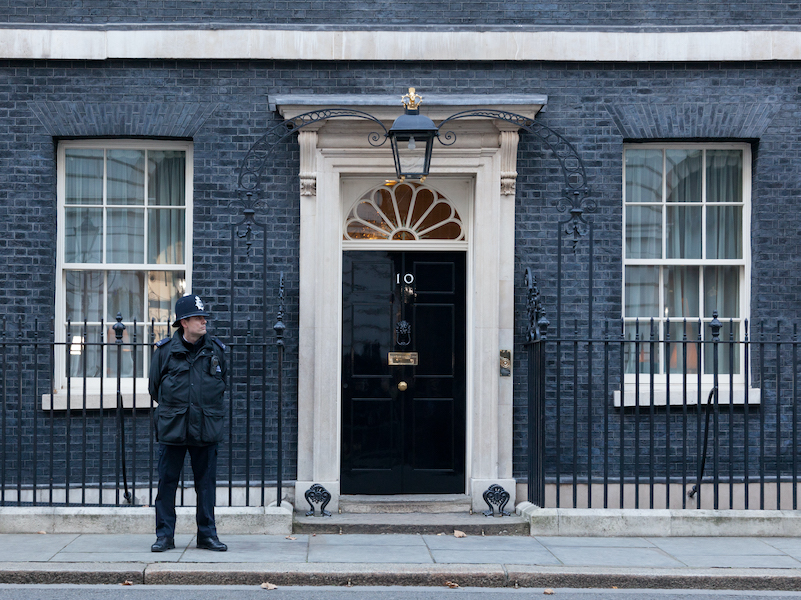
by Leah Tomkins
18 August 2020
Share this article:
In early April 2020, rumours were growing that the UK Prime Minister, Boris Johnson had been infected with the coronavirus. After a period of self-isolation in Downing Street, he was admitted to hospital, initially just as a “precautionary measure.” When he was subsequently taken into intensive care, even his staunchest critics fell silent…
Soon after his discharge, however, Johnson’s repeated absences both before and during the crisis experienced a huge “second spike” of criticism. Attention was rapidly refocused on his non-attendance at key UK Government crisis-management meetings and his decision to go on holiday in mid-February as the virus had been taking hold.
“There is nothing new about the question: Where’s Boris Johnson? Throughout his career, Johnson has developed a reputation for picking and choosing whether and when to show up – whether to TV debates, regions suffering flood-damage, difficult press conferences, or vital crisis-management meetings. UK readers of this blog might recall BBC political heavyweight, Andrew Neil’s reaction when Johnson refused to be interviewed for the 2019 election coverage: There is no law, no Supreme Court ruling, that can force Mr Johnson to participate in a BBC leaders’ interview. But the Prime Minister of our nation will, at times, have to stand up to President Trump, President Putin, President Xi of China. So it was surely not expecting too much that he spend half an hour standing up to me…We do [these interviews] on your behalf to scrutinise and hold to account those who would govern us. That is democracy.”(1)
In more normal times, Johnson has mostly got away with his patchy attendance record. Indeed, he may have been using the strategic no-show as a way of disrupting the rhythm of political commentary, frustrating many in the “mainstream media” by refusing to dance to their tune. His apparent lack of deference to the establishment has resonated with an electorate disenchanted with “The System” and willing to be entertained by those who challenge it. This helps to explain the paradox of his leadership persona, namely that he can appeal to broad swathes of the population with an anti-elitist message despite being at the highest echelon of the establishment elite himself (Eton College, Oxford University, Bullingdon Club, etc).
But there are key differences between peace- and war-time leadership – specifically now a war against a virus. In war-time, we have a much deeper need for our leaders to show up consistently and reliably to prove that they care. Their steady presence sends a signal – both consciously and unconsciously – that the crisis can be managed and endured. Successful caring leaders acknowledge that things are tough, whilst reassuring us through their presence that “we are all in this together.” After the disastrous no-shows around the death of Diana, Princess of Wales, the Queen now understands this perfectly. Her recent TV address to the nation to mark VE Day 75 came only a matter of weeks after her previous TV appearance acknowledging the terrors of COVID-19 and honouring the work of the country’s care professionals.
Leaders who regularly go “missing in action” are failing in this most basic duty of care. This intensifies our sense of helplessness, reawakening our most primal fears of loss, abandonment, and betrayal of our inner child. The crisis outside becomes the crisis within. When we are already feeling afraid of a present but invisible virus, any leader whose presence and visibility are unreliable will make us feel much more vulnerable.
Successful caring leaders acknowledge that things are tough, whilst reassuring us through their presence that “we are all in this together.”
At a time when we are all “clapping for carers,” Johnson is faced with a deep conundrum. His track-record of no-shows exposes him to accusations that he doesn’t really care. His traditional appeal has been based on his eternally optimistic, carefree outlook. But when it is impossible for us to be carefree, it is a great mistake for any leader to come across as careless.
Ironically, whilst Johnson is struggling with this basic test of caring leadership, he has also fallen into its most obvious trap. Care ethics has its roots in the family and in relationships of kinship and familiarity. When applied to matters of leadership, this can result in favouritism, even nepotism – going the extra mile to support one’s kin, irrespective of how unjust such selective support might be to others. Johnson’s dogged loyalty to his chief advisor, Dominic Cummings, is a perfect example of what can happen when care gets distorted into cronyism – and of the visceral anger this evokes in those who are not recipients of such favouritism and exceptionalism.
The good news, though, is that we are not powerless on how a leader’s absences make us feel, whether in politics or in any other sort of organisation or institution. We can wise up to how our leaders’ no-shows affect us psychologically – what buttons they are pushing – and use this to try to change how we respond to the crisis. By understanding that the anxiety we feel is, in part, a response to primal fears of abandonment that any leader’s carelessness will evoke in us, we can take a first step in deciding how to take care of ourselves. The crisis without doesn’t have to become a full-blown crisis within.
This blog is adapted from a Special Issue of the journal Leadership devoted to leadership and the coronavirus crisis. This paper can be accessed online for free. All the other papers in this Special Issue are also freely available.

Leah Tomkins is a scholar at the Open University, UK. Previously, Leah spent two decades in industry, holding leadership positions in the private sector (Accenture, KPMG and PwC) and government, where she was Director of People Strategy for the UK Civil Service. Her research draws on philosophy and the humanities to try to bridge the gaps between theory, practice, rhetoric, and experience.
For more on the challenges of caring leadership, check out Leah’s latest book – Paradox and Power in Caring Leadership. Several chapters are free-to-access.

